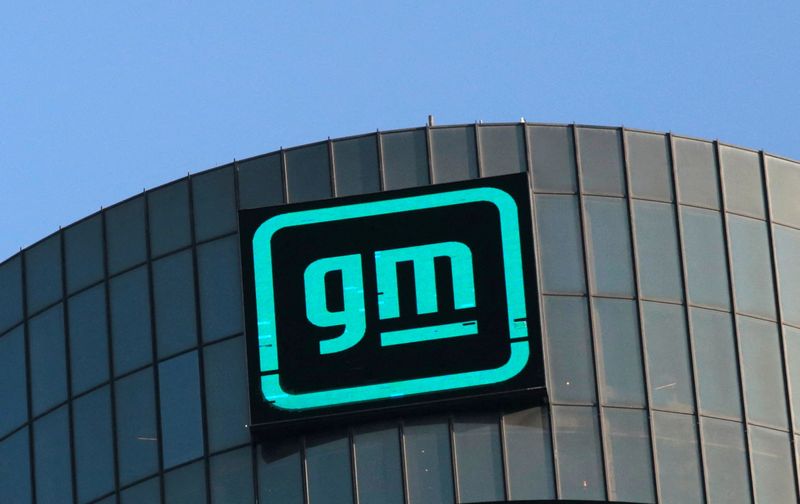By Joseph White
DETROIT (Reuters) - After nearly four weeks of disruptive strikes and hard bargaining, the United Auto Workers and the Detroit Three automakers have edged closer to a deal that could offer record-setting wage gains for nearly 150,000 U.S. workers.
General Motors (NYSE:GM), Ford Motor (NYSE:F) and Chrysler parent Stellantis (NYSE:STLA) have all agreed to raise base wages by between 20% and 23% over a four-year deal, according to union and company statements.
Ford and Stellantis have agreed to reinstate cost-of-living adjustments, or COLA. The companies have offered to boost pay for temporary workers and give them a faster path to full-time, full-wage status. All three have proposed slashing the time it takes a new hire to get to the top UAW pay rate.
The progress in contract talks follows the first-ever simultaneous strike by the UAW against Detroit's Big Three automakers. The union began the strike on Sept. 15 in hopes of forcing a better deal from each major automaker.
But coming close to a deal is not the same thing as reaching a deal.
Big obstacles remain on at least two major UAW demands: restoring the retirement security provided by pre-2007 defined benefit pension plans, and covering present and future joint- venture electric vehicle battery plants under the union's master contracts with the automakers.
On retirement, none of the automakers has agreed to restore pre-2007 defined-benefit pension plans for workers hired after 2007. Doing so could force the automakers to again burden their balance sheets with multibillion-dollar liabilities. GM and the former Chrysler unloaded most of those liabilities in their 2009 bankruptcies.
The union and automakers have explored an approach to providing more income security by offering annuities as an investment option in their company-sponsored 401(k) savings plans, people familiar with the discussions said. Stellantis referred to an annuity option as part of a more generous 401(k) proposal on Sept. 22.
Annuities or similar instruments could give UAW retirees assurance of fixed, predictable payouts less dependent on stock market ups and downs, experts said.
Recent changes in federal law have removed obstacles to including annuities as a feature of corporate 401(k) plans, said Olivia Mitchell, a professor at the University of Pennsylvania Wharton School and an expert on pensions and retirement.
"Retirees want a way to be assured they won't run out of money," Mitchell said. New federal laws enacted as part of the SECURE Act of 2022 were designed to encourage companies to offer annuities that could provide a defined level of income for retirees, she said.
"The nostalgia for the good old days of the defined-benefit plans is overstated," Mitchell said. "Typically you had to work at that company your entire career. That may have characterized the labor market of 50 years ago ... it doesn’t really characterize the labor market today."
Companies have not rushed to add annuities to defined-contribution retirement plans in part because "these can be very expensive investment products,” said University of Michigan business law professor Dana Muir.
CANADA TALKS
In Canada, Ford and GM have agreed with Unifor, which represents Canadian auto plant workers, to move their employees to hybrid retirement plans offered by CAAT, a nonprofit fund manager. CAAT has expanded from roots as an Ontario college employee pension system to representing nearly 300 Canadian employers in a range of industries.
For the automakers, the CAAT pension plans will work like a defined-contribution retirement plan, putting no liability for benefits on their balance sheets. CAAT will assure that workers get defined benefits in retirement, CAAT and Unifor said.
Separately, the UAW and companies have not agreed on the complex issues raised by new electric-vehicle battery plants owned by joint ventures.
GM last Friday avoided a strike at its highly profitable large SUV factory in Arlington, Texas, by agreeing to place its joint-venture battery factories under the UAW's master contract, UAW President Shawn Fain said.
But as of Wednesday, neither GM nor the union had made public details of what that will mean for workers' wages and benefits. Neither Ford nor Stellantis have said publicly they would match GM's offer. Ford and Stellantis have not begun hiring workers for their respective battery joint ventures, including a second battery factory that Stellantis said Wednesday would be built in Fain's hometown of Kokomo, Indiana.
Under U.S. labor law, the UAW would have to organize the battery joint ventures, which are separate entities from the automakers.

So far, Ford and Stellantis have not matched GM's proposal on battery plants.
"While Ford remains open to the possibility of working with the UAW on future battery plants in the United States, these are multi-billion-dollar investments and must operate at competitive and sustainable levels," the automaker said in a statement. Three of four battery plants Ford plans will be operated as joint ventures with South Korean battery maker SK On.